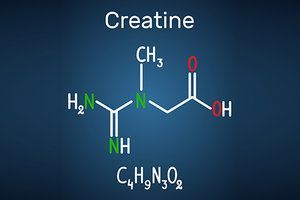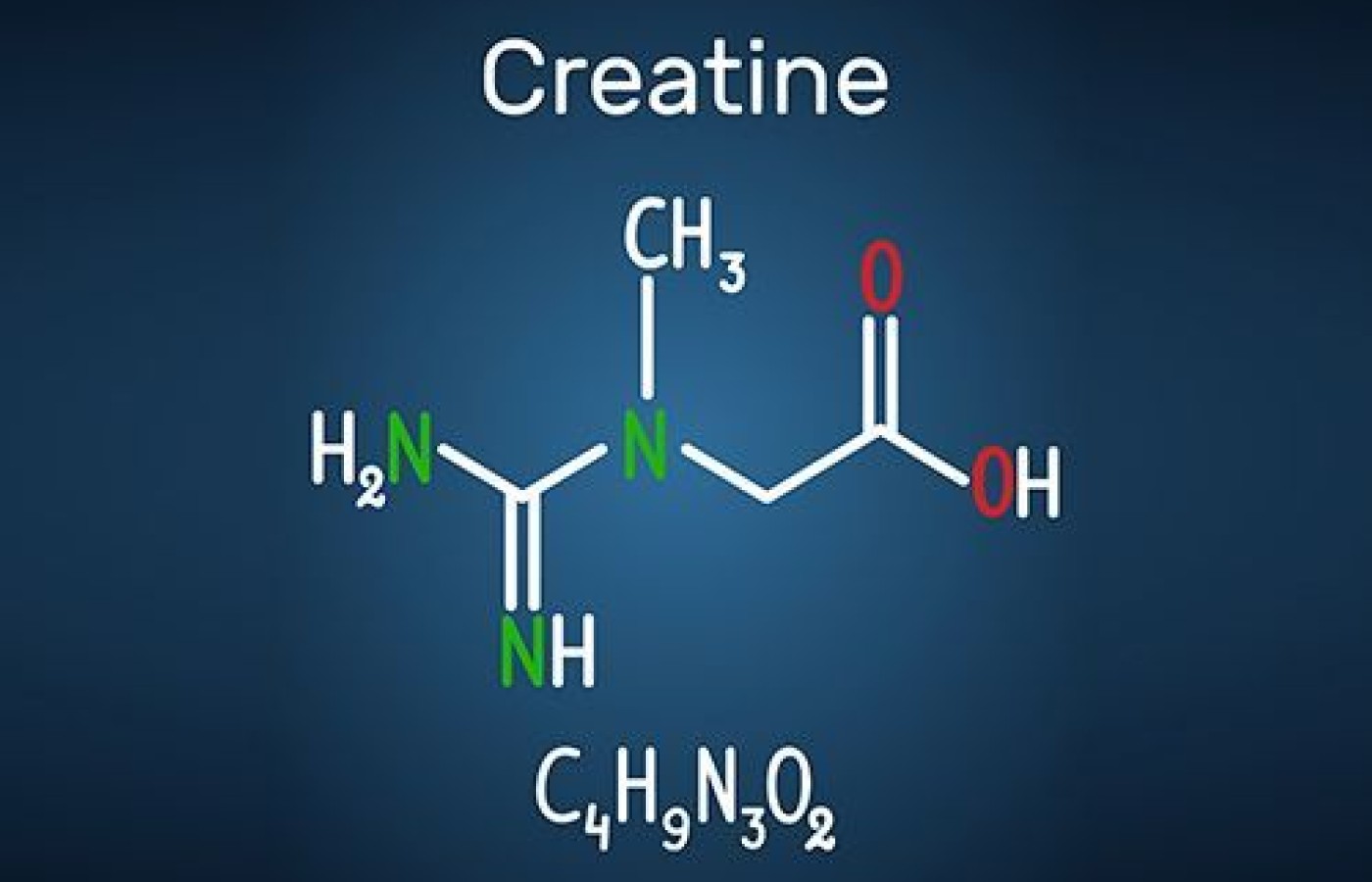Some doctors thrive in a personality-based clinic and have a loyal following no matter what services or equipment they offer, but for most chiropractic offices who are trying to grow and expand, new equipment purchases help us stay relevant and continue to service our client base in the best, most up-to-date manner possible. So, regarding equipment purchasing: should you lease, get a bank loan, or pay cash?
Creatine: Muscle Fuel No Longer Just for Athletes!
Erase that image of the 20-year-old, muscle-bound bodybuilder using creatine. Replace it with the image of a lean, strong, fit 80-year-old hiking up a mountain. Creatine, a staple of athletes for more than 50 years, is now being used by athletes and non-athletes alike to help slow normal age-related muscle loss, improve exercise recovery, increase strength, and live a more active lifestyle.1
Just because you're getting older doesn't mean you have to slow down. Creatine can help – believe it!
Creatine and the Challenge of Aging
Sarcopenia is the normal and involuntary loss of skeletal muscle mass and function that occurs as we age. We lose an average of 5 percent of muscle mass per decade after age 30. This loss accelerates after age 65.2
Sarcopenia has a progressively negative effect on strength, resulting in impaired functional performance, an increased risk for falls in our senior years, and an overall lower quality of life.3 It is a multifactorial phenomenon characterized by changes in muscle morphology, protein and hormonal kinetics, oxidative stress, inflammation, physical activity and nutrition.2
Given the negative implications of age-related muscle loss, taking steps to combat it is important. It is well-known that resistance exercise increases aging muscle mass and strength. These physiological adaptations from exercise may be further enhanced with certain nutritional interventions. Research indicates that essential amino acids and milk-based proteins, essential fatty acids, and vitamin D may all have beneficial effects on aging muscle biology. And so does creatine.4-8
What Is Creatine & How Does It Work?

Creatine – most often studied as creatine monohydrate – is a short-chain amino acid, glycine and arginine. It regulates energy to many cells in the body, but primarily does so in muscle.9 Think of creatine as fuel for working muscles, called upon to provide the energy necessary for contraction.
About half of the creatine in our bodies is made naturally by the liver and kidneys, with the other half coming from food. But to supply adequate amounts of creatine to fuel muscles, most people would need to eat a pound of beef or salmon every day!10
Not only is it hard to get creatine in our diets, but natural stores of creatine are rapidly depleted during exercise, leading to fatigue. This is why supplementation with creatine can make a real difference – it increases the amount stored in muscles, thereby giving muscles more energy to contract. And more contraction means building more muscle.
Research: Creatine Is Safe and Effective in Adults of All Ages
There is now abundant evidence showing that creatine supplementation combined with exercise increases lean body mass (muscle) and strength in adults of all ages, including seniors.2,4,11 Aging is associated with lower levels of creatine and phosphocreatine, specifically in skeletal muscle, and supplementation can help elevate these levels. Even without exercise, creatine has been shown to slow or completely stop muscle loss.5-7
Additionally, the literature shows that through the effect of an insulin response, the most effective means to enhance creatine uptake is by adding a carbohydrate source.12
Creatine has been available over-the-counter for the past 40 years and is still the most widely used performance-enhancing supplement by athletes across the world. It has been shown to be safe and effective. Few individuals experience any negative effects by taking low amounts of up to 5 grams daily.
The Link Between Muscle Strength and Bone Health
In addition to improving muscle strength, creatine can indirectly help bone health, too. One of the most serious bone-related problems facing the elderly is the loss of muscle strength and function. This muscle loss results in frailty, physical impairment, and an increased risk for falls and their resulting fractures.13
Current research clearly shows that maintaining stronger muscles helps reduce falls.13 Research also shows bone mineral density may be positively affected by both lean body mass (muscle mass) and muscle strength independently.14
With all of its potential to increase strength and bone quality, everyone over the age of 35 should consider supplementing with creatine monohydrate. Why act your age? Creatine isn't just for athletes anymore!
References
- Kreider RB, Kalman DS, Antonio J, et al. International Society of Sports Nutrition position stand: safety and efficacy of creatine supplementation in exercise, sport, and medicine. J Int Soc Sports Nutr, 2017 Jun 13;14:18.
- Doherty TJ. Invited review: aging and sarcopenia. J Appl Physiol 2003 Oct 1;95:1717-1727.
- Terjung RL, Clarkson P, Eichner ER, et al. The American College of Sports Medicine Roundtable on the physiological and health effects of oral creatine supplementation. Med Sci Sports Exerc, 2000;32(3):706-717.
- Gotshalk LA, Kraemer WJ, Mendonca MA, et al. Creatine supplementation improves muscular performance in older women. Eur J Appl Physiol, 2008 Jan;102(2):223-31.
- Gotshalk LA, Volek JS, Staron RS, et al. Creatine supplementation improves muscular performance in older men. Med Sci Sports Exerc, 2002 Mar;34(3):537-43.
- Chrusch MJ, Chilibeck PD, Chad KE, et al. Creatine supplementation combined with resistance training in older men. Med Sci Sports Exerc, 2001 Dec;33(12):2111-7.
- Pinto CL, Botelho PB, Carneiro JA, Mota JF. Impact of creatine supplementation in combination with resistance training on lean mass in the elderly. J Cachexia Sarcopenia Muscle, 2016 Sep;7(4):413-421.
- Brose A, Parise G, Tarnopolsky MA. Creatine supplementation enhances isometric strength and body composition improvements following strength exercise training in older adults. J Gerontol A Biol Sci Med Sci, 2003 Jan;58(1):11-9.
- Chanutin A: The fate of creatine when administered to man. J Biol Chem, 1926;67(1):29-41.
- Brosnan ME, Brosnan JT. The role of dietary creatine. Amino Acids, 2016;48(8):1785-91.
- Candow DG, Forbes SC, Little JP, et al. Effect of nutritional interventions and resistance exercise on aging muscle mass and strength. Biogerontol, 2012 Aug;13(4):345-58.
- Harris RC, Söderlund K, Hultman E. Carbohydrate ingestion augments skeletal muscle creatine accumulation during creatine supplementation in humans. Clin Sci, 1992 Sep;83(3):367-74.
- El-Khoury F, Cassou B, Charles MA, Dargent-Molina P. The effect of fall prevention exercise programmes on fall induced injuries in community dwelling older adults: systematic review and meta-analysis of randomised controlled trials. BMJ, 2013;347.
- Chilibeck PD, et al. Creatine monohydrate and resistance training increase bone mineral content and density in older men. J Nutr Health Aging, 2005;9(5):352-3.



